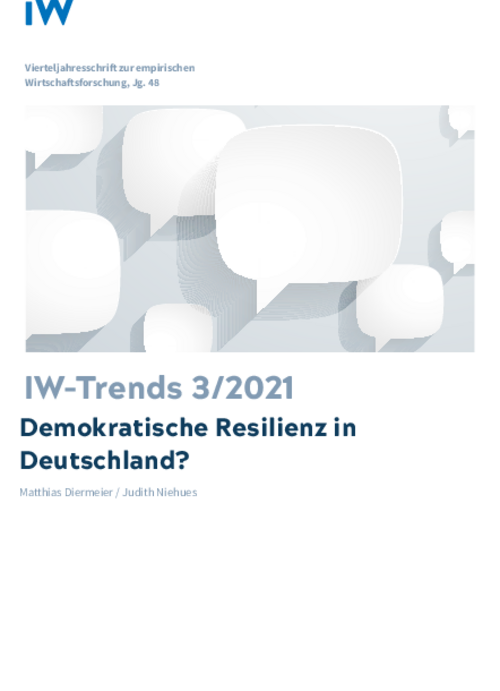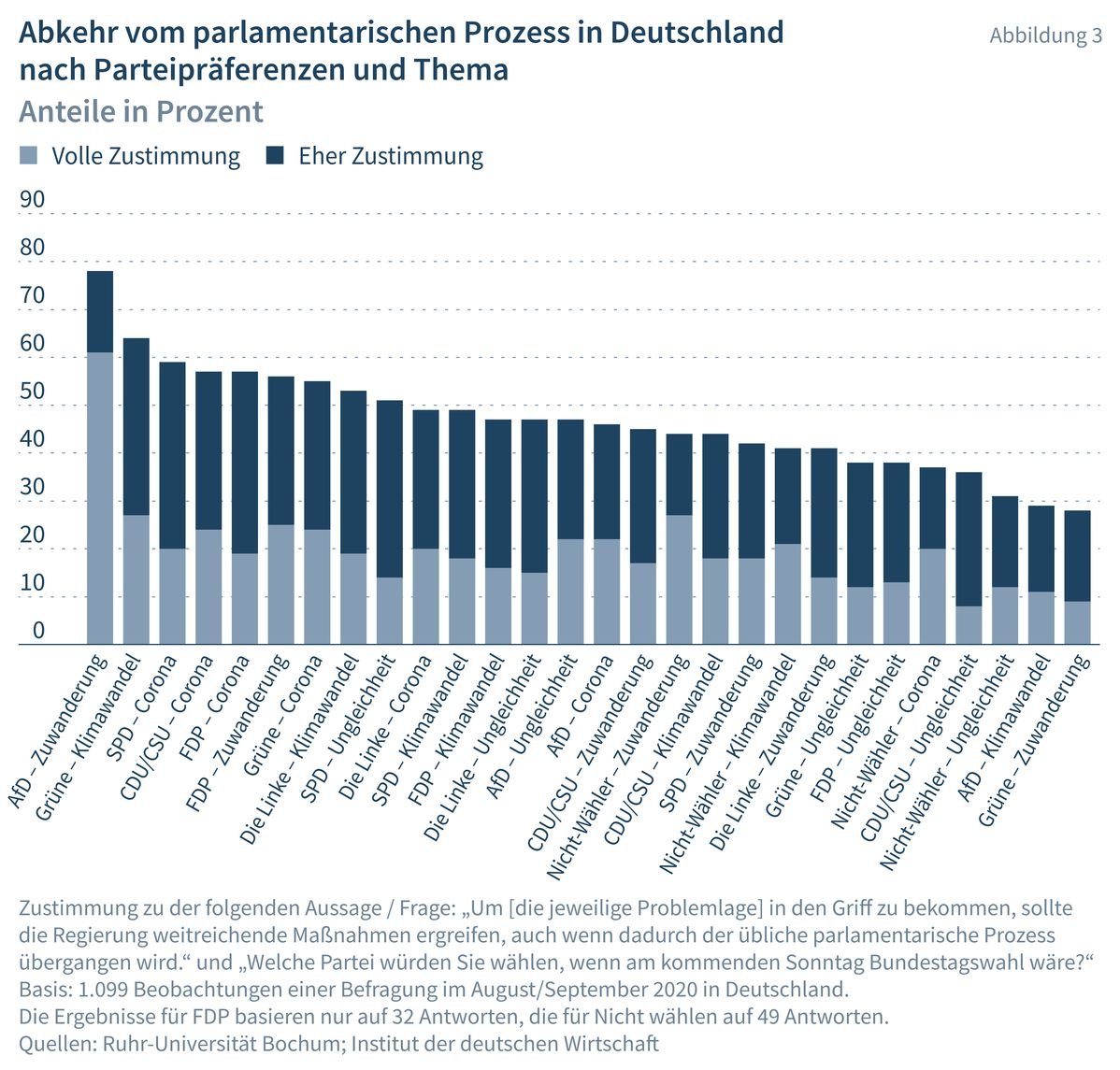A lively democracy thrives on the struggle between different interest groups for majority opinion on specific issues. Though the institutionalised process of balancing interests and hearing opposing points of view takes time, acceptance of these parliamentary procedures is essential for the functioning of our pluralistic democracy.

Democratic Resilience in Germany?: Acceptance of Parliamentary Procedures in the Light of Individual Problem Perception

A lively democracy thrives on the struggle between different interest groups for majority opinion on specific issues. Though the institutionalised process of balancing interests and hearing opposing points of view takes time, acceptance of these parliamentary procedures is essential for the functioning of our pluralistic democracy.
We therefore conducted a nationwide survey to investigate popular tendencies to accept the bypassing of the usual legislative process in order to meet the perceived need for action on four issues: the Corona pandemic, immigration, climate protection and social inequality. Overall, more than half the population are eager to see far-reaching measures implemented on at least one of these issues, even if it means bypassing the normal parliamentary procedures. There is considerable understanding among supporters of all parties for circumventing the full legislative process to combat the Corona pandemic. Of those favouring the AfD, Germany’s most right-wing popular party, 78 per cent express impatience with due process in matters of immigration, while 65 per cent of those identifying with the ecologically oriented Green Party would accept parliamentary corner-cutting in order to tackle climate change. The long-established discourse on social inequality, on the other hand, is characterised by a certain resistance to such impatience: while three-quarters of the population see a need for action here, less than half of this group is in favour of skipping the legislative formalities to achieve it. While a very pessimistic perception of socio-economic conditions increases the likelihood of democracy fatigue, a rejection of authoritarian attitudes and a better level of education can have the opposite effect.


Democratic Resilience in Germany?: Acceptance of Parliamentary Procedures in the Light of Individual Problem Perception

More on the topic

Securing skilled workers through immigration to universities
Against the backdrop of demographic change, Germany is increasingly dependent on skilled labour from abroad to secure growth and prosperity.
IW
Record immigration not only due to flight from Ukraine
In 2022, more people immigrated to Germany than ever before in the history of the Federal Republic. Around 1.46 million more people moved here than left the country, which is more than a quarter more than the previous record of 1.14 million from 2015.
IW